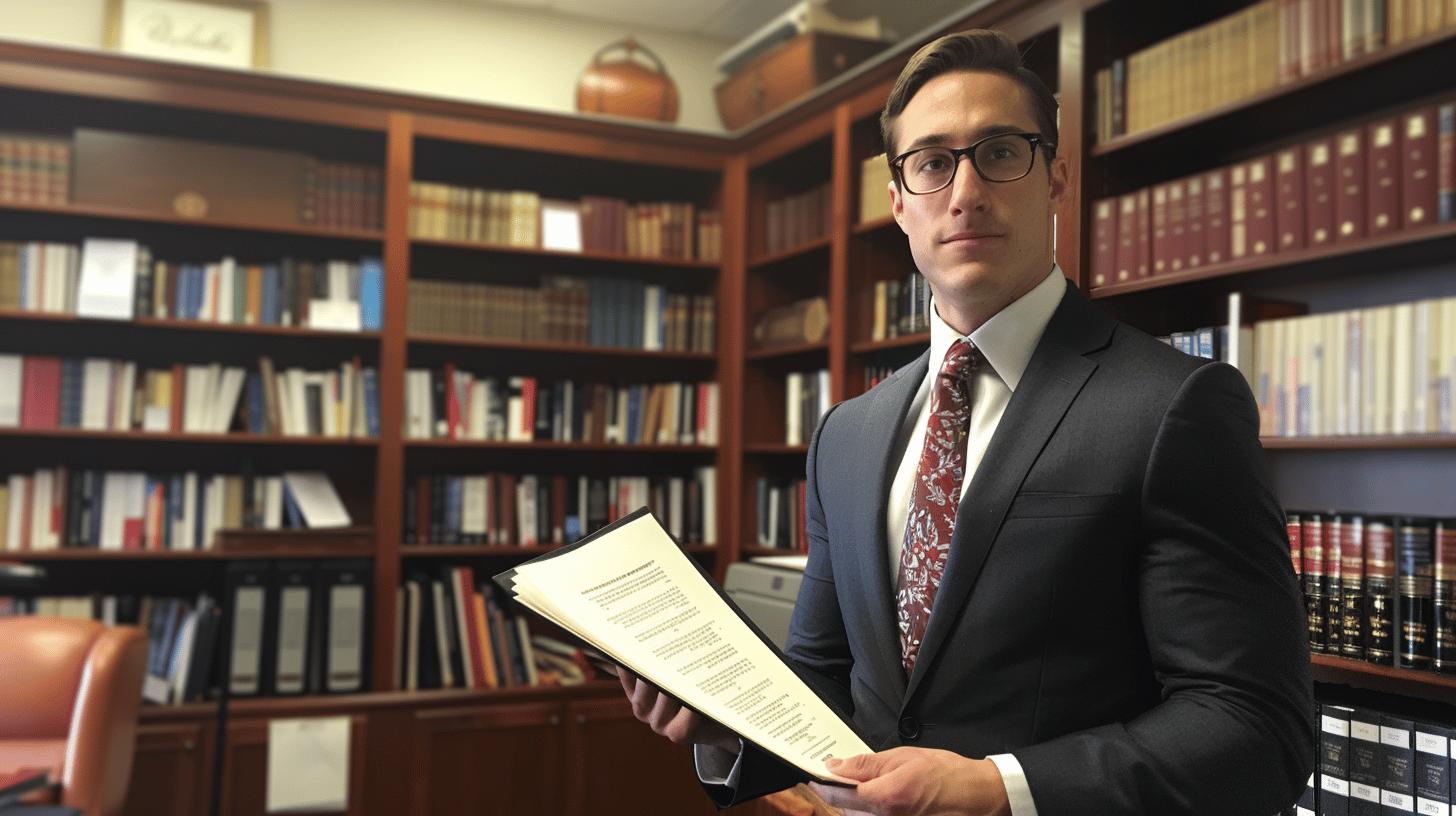Imagine facing severe penalties, crippling fines, and potential jail time just because of a single stock trade. Insider trading cases cast a long shadow over the financial world, leaving many in a state of confusion and fear. That's why having an insider trading lawyer is not just beneficial—it's essential. These experts navigate the labyrinthine SEC regulations, defend clients against complex allegations, and ensure that your rights are vigorously protected. In this article, we'll explore how professional legal guidance can make all the difference when facing insider trading allegations.
Understanding Insider Trading and Its Legal Implications
Insider trading involves the buying or selling of a publicly-traded company's stock by someone who has non-public, material information about that stock. The SEC defines material information as anything that a reasonable investor would consider important in making a decision to buy or sell securities.
The legal implications of insider trading are severe. Individuals found guilty of insider trading can face significant penalties, including hefty fines, imprisonment, and the loss of professional licenses. The SEC actively investigates and prosecutes cases of insider trading to maintain market integrity and protect investors. These legal consequences underscore the importance of compliance with securities laws and highlight the risks associated with using non-public information for trading purposes.
If you face allegations of insider trading, having a legal expert is crucial. An insider trading lawyer can help navigate complex legal proceedings, develop a robust defense strategy, and mitigate potential penalties. Their expertise in SEC regulations and securities law ensures that your rights are protected and that you receive the best possible legal representation.
Key elements that constitute insider trading:
- Non-public information: The information must not be available to the general public.
- Material information: The information must be significant enough to influence an investor's decision.
- Breach of duty: The individual must have a duty to keep the information confidential.
- Intent to profit: The trading must be motivated by the desire to gain a financial advantage.
- Actual trading: The individual must have bought or sold securities based on the non-public information.
How an Insider Trading Lawyer Can Help

An insider trading lawyer specializes in defending individuals accused of insider trading, leveraging their deep knowledge of SEC regulations and securities law. These attorneys possess the expertise to handle the complexities of insider trading cases, ensuring that their clients receive comprehensive legal support tailored to their unique situations.
The support provided by an insider trading lawyer is multifaceted. They help clients understand the specific charges against them, explaining the legal implications and potential consequences. Building a robust defense strategy is a key component of their service, which often involves gathering evidence, interviewing witnesses, and identifying weaknesses in the prosecution's case. Additionally, insider trading attorneys guide clients through the legal proceedings, representing them in court and negotiating with regulatory bodies to achieve the best possible outcome. They also offer advice on compliance measures to mitigate the risk of future allegations.
Specific ways insider trading lawyers assist clients:
- Understanding charges: Clarifying the nature and implications of the accusations.
- Defense strategy: Crafting a comprehensive plan to counter the prosecution.
- Evidence gathering: Collecting and analyzing relevant information to support the defense.
- Witness interviews: Conducting thorough interviews to build a strong case.
- Court representation: Advocating for clients in legal proceedings.
- Compliance advice: Providing guidance on adhering to SEC regulations to prevent future issues.
Compliance advice is particularly critical as it helps clients avoid potential legal troubles down the road. By implementing effective compliance programs and staying updated on regulatory changes, clients can significantly reduce the risk of facing insider trading allegations in the future. An insider trading lawyer's expertise in both defense and compliance ensures that clients are well-equipped to navigate the legal landscape effectively.
Famous Insider Trading Cases and Legal Outcomes
The Martha Stewart insider trading case is one of the most well-known examples of the severe legal consequences associated with insider trading. In 2001, Stewart sold her shares of ImClone Systems based on non-public information provided by her broker, Peter Bacanovic. This information concerned an impending negative FDA decision on an ImClone drug. As a result, Martha Stewart was sentenced to five months in prison, five months of home confinement, and fined $30,000. The case significantly damaged her public image and underscored the legal and reputational risks tied to insider trading.
The ImClone stock scandal didn't just involve Martha Stewart; it also implicated Peter Bacanovic and Sam Waksal, the CEO of ImClone. Bacanovic, who informed Stewart about the FDA decision, was sentenced to five months in prison and five months of home detention. Waksal, who attempted to sell his shares and tipped off family members, received a more severe punishment—seven years in prison and a $4.3 million fine. This scandal highlighted the intricate web of illegal activities and the broad reach of insider trading laws. It emphasized the critical role of brokers, executives, and other insiders in maintaining market integrity.
| Case | Individuals Involved | Outcome |
|---|---|---|
| Martha Stewart Case | Martha Stewart, Peter Bacanovic | Stewart: 5 months prison, 5 months home confinement, $30,000 fine; Bacanovic: 5 months prison, 5 months home detention |
| ImClone Stock Scandal | Sam Waksal | 7 years prison, $4.3 million fine |
| Raj Rajaratnam Case | Raj Rajaratnam | 11 years prison, $10 million fine, $53.8 million in forfeiture |
These cases teach us valuable lessons about the importance of legal representation in insider trading allegations. The legal outcomes for individuals involved in these scandals demonstrate that the consequences of insider trading are not just financial but can also lead to significant prison time and lasting reputational damage. Legal expertise is crucial in navigating these complex allegations, challenging evidence, and mitigating penalties. Experienced insider trading lawyers are essential in ensuring that individuals receive a fair trial and the best possible defense.
SEC Regulations and Compliance for Insider Trading

The SEC plays a pivotal role in enforcing regulations to prevent insider trading. Established to protect investors and maintain fair market practices, the SEC imposes strict rules and takes decisive enforcement actions against violators. Recent enforcement actions have demonstrated the SEC's commitment to curbing insider trading, including high-profile cases involving significant fines and prison sentences. By continuously updating its regulations, the SEC addresses emerging threats and ensures that market integrity is upheld.
Disclosure requirements and compliance programs are essential components of the SEC's regulatory framework. Companies must establish robust policies to detect and prevent insider trading. These policies include monitoring trading activities, maintaining insider lists, and ensuring that employees are educated on the legal implications of insider trading. Compliance programs must be dynamic and adaptable, capable of evolving with regulatory changes to effectively mitigate risks. Adhering to these requirements helps companies avoid severe penalties and maintain a culture of transparency and accountability.
Key compliance measures companies must take:
- Establish insider trading policies: Develop and implement clear policies to prevent insider trading.
- Monitor trading activities: Regularly review and analyze trading activities to detect potential violations.
- Maintain insider lists: Keep accurate records of individuals who have access to material non-public information.
- Educate employees: Conduct regular training sessions to ensure employees understand insider trading laws and compliance requirements.
- Adapt compliance programs: Continuously update compliance programs to align with the latest SEC regulations and guidelines.
Staying updated with SEC regulations is crucial for both companies and individuals. The regulatory landscape is constantly evolving, and failing to keep abreast of changes can lead to significant legal and financial repercussions. Regularly reviewing and updating compliance programs ensures that companies remain compliant and can swiftly address any potential issues. By doing so, they can protect themselves from insider trading allegations and maintain the trust of investors and stakeholders.
Legal Strategies for Defending Insider Trading Charges
Defending against insider trading charges requires a multifaceted approach that leverages several legal strategies. One common strategy involves challenging the materiality of the information. By questioning whether the non-public information was truly significant enough to influence an investor's decision, defense lawyers can cast doubt on the prosecution's case. Another strategy is questioning the intent behind the trading actions. Demonstrating that the individual did not act with the intent to gain a financial advantage can be a powerful argument in court. Additionally, demonstrating the absence of causation—proving that the non-public information did not directly lead to the trading decision—can weaken the prosecution's claims.
Expert witnesses and thorough investigations play a critical role in building a robust defense. Expert witnesses, such as financial analysts or industry specialists, can provide testimony that supports the defense's arguments. These experts can help explain complex financial transactions and offer insights into the typical behavior of market participants. Thorough investigations are equally essential, as they involve gathering evidence, interviewing witnesses, and analyzing trading records. These steps are vital for uncovering exculpatory evidence and identifying inconsistencies in the prosecution's case.
Specific defense strategies used by lawyers:
- Challenging materiality: Questioning whether the information was significant enough to affect trading decisions.
- Questioning intent: Arguing that the individual did not intend to benefit financially from the information.
- Demonstrating absence of causation: Proving that the non-public information did not directly lead to the trading action.
- Leveraging expert witnesses: Using specialists to provide testimony that supports the defense.
- Conducting thorough investigations: Gathering evidence and interviewing witnesses to build a strong case.
Experienced legal representation is crucial for navigating the complex challenges of insider trading allegations. An insider trading defense lawyer's expertise ensures that all potential defense strategies are thoroughly explored and effectively implemented. This comprehensive approach maximizes the chances of achieving a favorable outcome and protecting the client's rights throughout the legal process.
Final Words
Understanding insider trading and its legal implications is crucial for anyone involved in trading stocks. Insider trading carries severe legal consequences, making the expertise of a specialized lawyer indispensable.
An insider trading lawyer can offer invaluable support by providing legal defenses, ensuring compliance, and preventing future allegations. Famous cases like Martha Stewart's underscore the dire need for legal acumen in such scenarios.
Adhering to SEC regulations and employing effective defense strategies are essential steps in avoiding and managing insider trading accusations. Always consult an insider trading lawyer for the best outcome.
FAQ
Who can sue for insider trading?
The SEC typically brings civil cases for insider trading, while the U.S. Department of Justice handles criminal cases. Shareholders may also file private lawsuits if affected.
Who investigates insider trading?
The SEC is the primary agency that investigates insider trading allegations. They may collaborate with the FBI, DOJ, and other regulatory bodies during the investigation.
What law is insider trading a violation of?
Insider trading violates the Securities Exchange Act of 1934, specifically Section 10(b) and Rule 10b-5. These laws prohibit fraudulent activities in the securities markets.
Do insider traders go to jail?
Yes, individuals convicted of insider trading can face severe penalties, including imprisonment. Sentences typically range from several months to multiple years, depending on the case.
